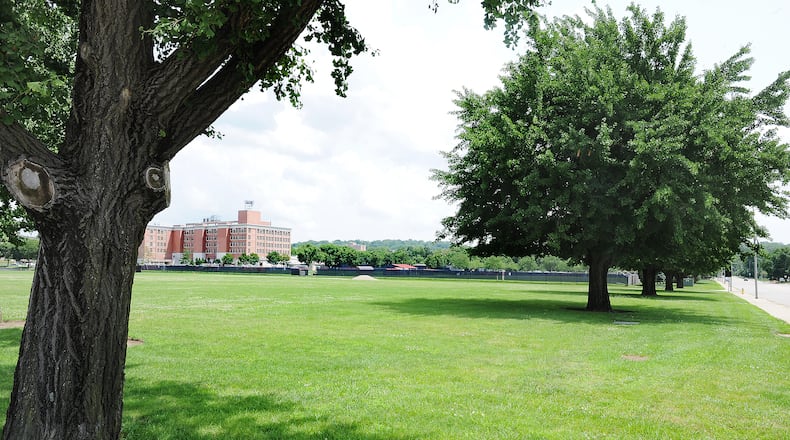As the weather turns colder, there are a couple of explanations for why certain smells might be permeating neighborhoods in the Miami Valley.
“Air near the ground cools faster than air above, particularly at night. The odors become trapped at ground level,” said Eileen Moran, the air pollution senior manager with the Regional Air Pollution Control Agency in Dayton. “This happens more often during the spring and fall when the daytime temperatures are very warm and the nighttime temperatures are much cooler.”
The Miami Valley is a river valley, which also makes odors more prevalent, she said.
“Odors sink and become more concentrated along the waterways and in the lowest parts of the valleys. The humidity also impacts how the odors are perceived,” she said.
Credit: JIM NOELKER
Credit: JIM NOELKER
Fall is also often when biosolids are applied to agricultural farm fields, including manure and fertilizer, and this combined with the temperature changes can result in high odor situations, Moran added.
Pam Bennett of the Ohio State University Extension Office in Clark County said it’s a little early in the season for most farmers’ manure application, but another possible explanation is the stinky falling fruit of female ginkgo trees.
Ginkgo trees are a dioecious species, which separates pollen producing (male) trees, and fruit and nut producing (female) trees. As we’re sure you know, that’s as opposed to a monoecious tree species, where both pollen and fruit are produced by the same plant, according to the Arnold Arboretum of Harvard University.
Ginkgoes have evolved to attract carrion-eating animals, which eat the smelly fruit and disperse the ginkgo seeds that aren’t digested by the animal, Harvard University said.
The fruit can smell a lot like manure, Bennett said.
Whatever the cause, bad odors would be most noticeable during the morning hours, around 8 or 9 a.m., Moran said. As the ground heats, the air will lift and there will be more mixing and dispersing of the smell.
RAPCA has not received any odor complaints recently that they are investigating, according to the agency.
About the Author



